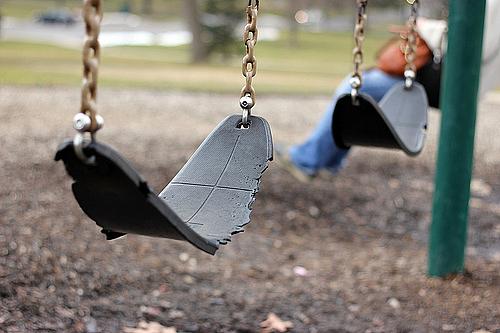Doctor highlights poverty’s damage on children

Dr. Perri Klass keenly recalls the feeling of helplessness. Among her patients at the clinic where she worked was a struggling mother of two young boys, and Klass had just asked the woman if she had any other concerns during one of the family’s routine medical visits.
“I’m afraid they’ll go to the bad,” the mother told Klass. It was her way of saying that she was worried the environment the boys were growing up in would soon lead them astray. While Klass searched her brain for a few quick suggestions that included an after-school program or youth sports, she later realized: “I had nothing to offer.”
Klass, a professor of journalism and pediatrics at NYU and keynote speaker at this week’s 2013 National Health Journalism Fellowship in Los Angeles, has wrestled more and more with the question of childhood poverty and its effects on young lives over the course of her career. Now her colleagues are joining her in growing numbers. At an annual meeting in early May, the Pediatric Academic Societies announced that reducing childhood poverty and its effects would be among the organization’s top priorities.
While childhood poverty is hardly a new issue, researchers now have a better understanding of just how damaging and enduring the effects of poverty can be on young lives. And the problem is getting worse, according to Klass.
“Children, demographically, are the poorest group in this country,” she said, and they have overtaken the elderly as the demographic with the highest rates of poverty.
That’s particularly worrisome to medical providers such as Klass, since it’s well known that poverty can have disastrous impacts on children’s health and chances of success. Children born to poorer families are at higher risk for a whole host of problems including pre-term births, low-birth weight, chronic disease, lower academic achievement, language deficits, nutritional deficiencies, childhood obesity and higher school drop-out rates. There’s also growing neurological evidence that suggests lower socioeconomic status tends to result in young brains that are wired differently than they are in wealthier counterparts. Those differences can impact behaviors such as executive function and the ability to pay attention or delay gratification.
Children who grow up in poverty are also far more likely to experience unstable, chaotic homes where perpetual stress can inflict lasting damage by permanently altering the way a child’s neurological and hormonal systems function.
“The idea is that this damages your brain and it damages your body,” Klass said. “That’s what makes it ‘toxic stress.’”
So is there anything to be done about the problem?
“There’s a danger that we’ll get too fatalistic,” Klass said. “There really are ways to make changes.”
One of the small initiatives Klass touted is called Reach Out and Read, a program where pediatricians give low-income parents books for children as young as six months during check-ups, in a bid to get parents reading and interacting more with their young children. While starting an early reading habit is important, Klass said, the books are really just a means to get parents to spend more focused, quality face-time with their kids. And the daily language bath doesn’t hurt either – research has shown that the number of words spoken in the home (the TV doesn’t count) can have a big impact on a child’s language ability, IQ and academic success.
Klass posed one of the central challenges in confronting childhood poverty in the form of a question:
“How can you remind parents -- many of them parents who are not getting a whole lot of help, support and reinforcement -- of the amazing, overarching, all-important value of the parent’s voice, the parent’s attention, face time with the parent – how important you are to that baby?”
Yet creating new parenting patterns and emphasizing the power of a parent’s directed attention toward the child will likely take more than an occasional reminder from the family pediatrician to bring about meaningful changes in the life of a disadvantaged child. The growing recognition that poorer parents need more than reminders is one reason why there has been more attention placed lately on the need to build the skills and capacities of parents through sustained, hands-on training and coaching programs.
Home-visiting programs and universal preschool have been shown to improve the performance and prospects of low-income kids, but as Klass’ comments suggest, waiting until preschool is often waiting too late. Parents need to be intensely involved with their children from the very beginning, and they’ll likely need some help doing so.
“People start out with their children resolving not to make the same mistakes, not to do things that they know damage them,” Klass said. “It’s very hard not to recreate the patterns, how can you help people figure out piece by piece how to build new patterns?”
Image by Austin Paul White via Flickr

